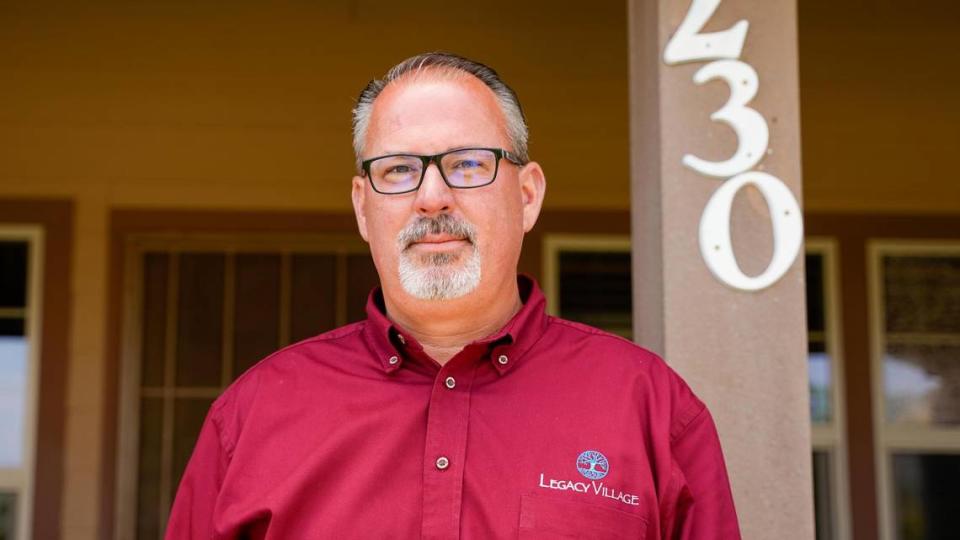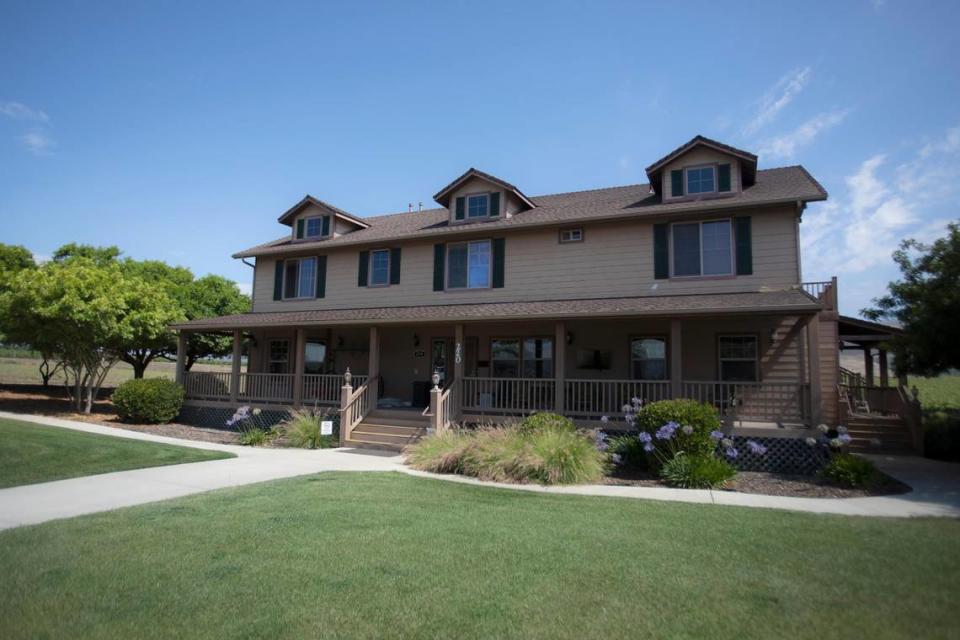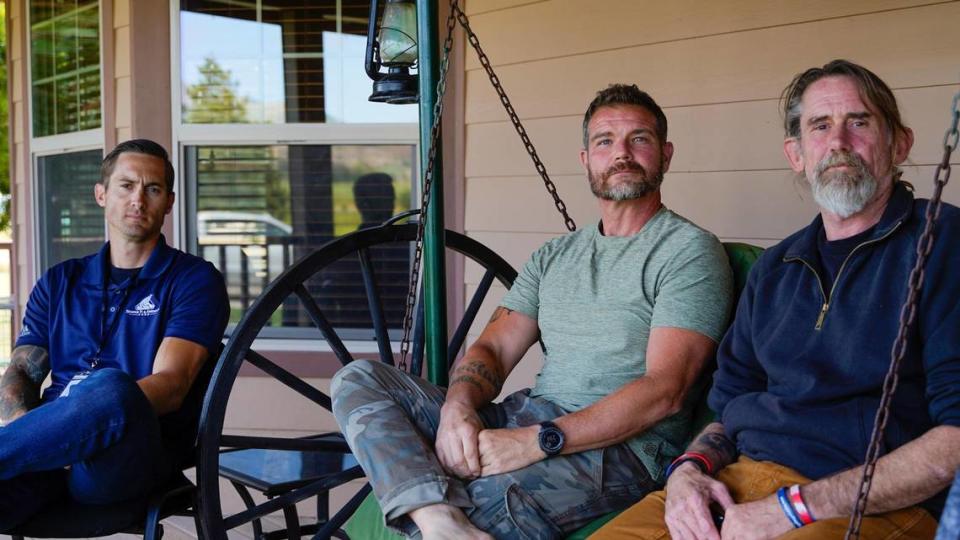SLO County veterans lose a local treatment option as rehab facility closes
In a surprising move, one of San Luis Obispo County’s residential treatment centers for military veterans announced Monday it is closing its doors effective immediately.
Legacy Village Wellness & Recovery Center, a residential rehabilitation center that specializes in working with veteran clients with substance abuse disorders, announced it would close permanently after the Greater Los Angeles Veterans Affairs office reduced the flow of new clients to the facility to a trickle earlier this year, CEO Dennis Farmer told The Tribune.
Last weekend, the VA denied a previous veteran client of Legacy Village who specifically asked to be sent back to the Nipomo facility and sent them to a residential treatment facility in Orange County instead, Farmer said.
The Orange County facility provides the same services as Legacy Village, is also part of the Community Care Network that the VA uses to treat veterans at residential facilities, and is farther from the veteran’s home than Legacy Village, but the VA decided not to refer to the closer facility, he said.
That decision was the “death knell” for the Nipomo-based treatment center, Farmer said.
“I don’t want to think that it was made personal, but you’d have a hard time convincing me that it’s not,” Farmer said.

Why did Legacy Village close its doors?
Legacy Village was founded by Farmer in Kern County in 2015 and originally was open to any client with a substance abuse disorder.
In January 2020, it changed its programming to be exclusive to veteran clients and moved into a 26-acre ranch in Nipomo, Farmer said.
Since its founding, Legacy Village contributed to more than 800 clients’ recoveries, with around 300 of those coming in the past three years when the facility worked with veterans, Farmer said in a news release.
More than 50% of the facility’s veteran clients were still in recovery one year after graduating from the program, the news release said.
That was until 2023, when a change in how the VA interprets the 2018 MISSION Act began to exclude Legacy Village from receiving new clients from the VA’s referral system, spelling “catastrophic consequences” for residential treatment facilities such as Legacy Village, Farmer said in the release.
In the past, the VA screened clients and determined whether they should be treated at VA facilities such as the Domiciliary in Los Angeles, or at residential facilities that are part of the Community Care Network, such as Legacy Village.
The Community Care Network is a collection of non-VA clinics that provide treatment for veterans in their own communities. Veterans could opt into the Community Care Network if they lived more than 40 miles from their nearest VA health center or if appointment wait times at the VA exceeded 30 days.

This year, the number of incoming referrals fell significantly as the VA began to treat more clients at its facilities. Legacy Village would have normally treated around 80 clients by the end of August, but by that time this year, the facility had treated only 40, Farmer said.
When Farmer first noticed the slowdown in new clients in early spring, he asked the VA for an explanation but did not receive clear answers, he said.
After The Tribune published a story in May on the declining referrals, Legacy Village was the subject of three separate complaints by the Greater Los Angeles VA, which had never happened before, Farmer said.
Farmer said he believes these complaints were lodged in an attempt to intimidate him and were never followed by punishments, leaving Legacy Village’s contract with the VA in good standing.
Farmer said that on a recent call with the Los Angeles VA’s leadership, he offered to reduce Legacy Village’s rates by 33% in an effort to keep the lights on, though he doubted the programming’s price was an issue.
A week later, he still hadn’t heard back from the VA.
With the reduced flow of VA clients making it difficult to keep operating, Farmer said he considered opening the facility’s services to first responder clients, but it’s now been several weeks since the last VA client graduated from the program, cutting off that pipeline and its timely funding entirely.
Payments through TriWest Healthcare Alliance — which covers most veterans’ benefits — usually took just seven to 10 days after clients started treatment, whereas commercial healthcare can take anywhere from 60 to 90 days, Farmer said.
That’s not fast enough to keep staff and bills paid in the short term, so, with eligible veteran clients being sent to other facilities, it was clear Legacy Village could not continue, Farmer said.

What will happen to Legacy Village?
As of Monday, all 26 full- and part-time staff members have been let go, Farmer said.
“I think everyone’s angry more than anything else,” Farmer said. “It’s not an anger that we’re closed, because something will happen and life will move on. (We’re) angry because how do you stand up against a government agency that’s doing something so egregiously wrong?”
It’s not yet known what will happen to the Nipomo ranch property, though Farmer said nearby equine therapy foundation Elite Vocations — which also specializes in treating veteran clients — has expressed some interest in leasing the property.
“On a personal level, I’ll have the resources between the sale of that property and some other stuff to be able to open another (residential treatment facility),” Farmer said. “I just can’t see doing it anywhere where I would have to be involved with (the) Greater Los Angeles (VA).”
In an attempt to downsize the operation and survive, Farmer said Legacy Village purchased a permanent, 10-acre property on Pomeroy Road in Nipomo as its next home, but now it will sell the property.
Though Legacy Village is closed, Farmer said he and his staff are thankful for the clients they treated, the San Luis Obispo County VA staff that supported their mission and the community’s support.
“I am proud of the work we shared within the community and humbled by your acceptance and support of Legacy Village,” Farmer said in the news release. “My deepest gratitude to each of you in San Luis Obispo and Santa Barbara counties who helped in our efforts to change veterans’ lives.”

